Sorry Patrick, we preach human rights, but we speak economy
- Sofia Graziano

- Jun 23, 2021
- 7 min read
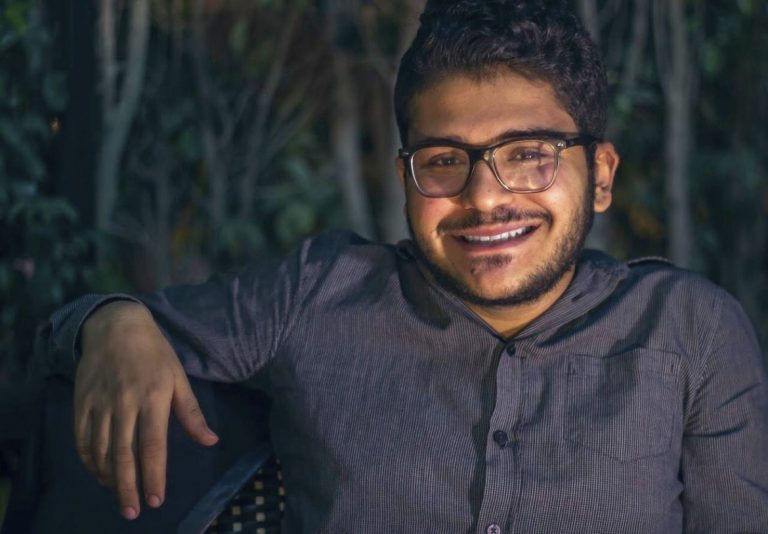
Patrick Zaki, human rights activist and researcher
Patrick Zaki is an Egyptian researcher and activist for religious minority and LGBT+ rights and a student in the field of gender studies at the University of Bologna, Italy. Back in his home country, he took active part in organisation of the 2018 presidential campaign of Khaled Ali, human rights lawyer and activist who later resigned from the elections to denounce the atmosphere of intimidation and lack of freedom for the opposition under Abdel Fatah al-Sisi’s regime. He is also a gender and human rights researcher at the Egyptian Initiative for Personal Rights, a Cairo-based NGO focused on prisoners’ rights and social and economic justice.
The unlawful detention
Since the Egyptian authorities noticed and started to consider his engagement in promoting human rights and gender issues as a threat to the current government’s oppressive narrative, Patrick Zaki, as many other researchers, journalists and activists, has been harshly targeted by the state’s repressive detention machine. As soon as he landed in Cairo for a brief family visit on 7th February 2020, he was stopped at the airport for questioning by the National Security Investigations and arrested. The NSI held him for a 24-hour incommunicado detention, i.e. the condition when the detained is denied any contact with relatives and attorneys and has no possibility to notify anyone about the arrest. Such practice is condemned by the UN Human Rights Committee as it is reasonably believed to facilitate torture and other illegal prisoner treatments, but it is till today widely used in many countries under the assumption that it may be decisive in counter-terrorism operations.
According to what reported by EIPR, Patrick Zaki was brought before a Public Prosecutor in the city of Mansoura and accused of “publishing rumours and false news that aim to disturb social peace and sow chaos; incitement to protest (...) with the aim of undermining state authority; calling for the overthrow of the state; managing a social media account that aims to undermine the social order and public safety; incitement to commit violence and terrorist crimes”. The accusation were based on ten posts published on a Facebook account, which his defence deems as fake. Since then, Patrick Zaki has been kept in preventive, pre-trial detention until a later, undefined date.
Zaki’s lawyers evidenced a long list of irregularities in the judicial procedure initiated, and demanded his release on the base of such improprieties. They argued that Zaki had been illegally detained and brought with no apparent reason to the court of Mansoura instead of the relevant court of Cairo. What is more, they repeatedly denounced the tortures suffered during the detention. The appeal against the unlawful detention was rejected on 15th February 2020 by the Mansoura II Misdemeanours Appeals Court. More than one year later, no significant change has been made in that direction, since the court has been prolonging the researcher’s detention over and over. More recently, on 2nd June 2021, the court extended the detention by 45 days, which Patrick will be spending, again, with no fair trial or possibility to defend himself.
According to Amnesty International, Patrick Zaki’s “arbitrary arrest and torture (...) is yet another example of the state’s deep-rooted repression of perceived opponents and human rights’ defenders”. This worryingly systematic political reaction to any form of opposition to the al-Sisi regime is responsible for the ill-treatment of prisoners of conscience like Patrick Zaki, i.e. the illegally detained people who, despite advocating for their ideas by peaceful means, are imprisoned without an justifiable reason beside their identity or beliefs.
Increasing consternation within Italian society
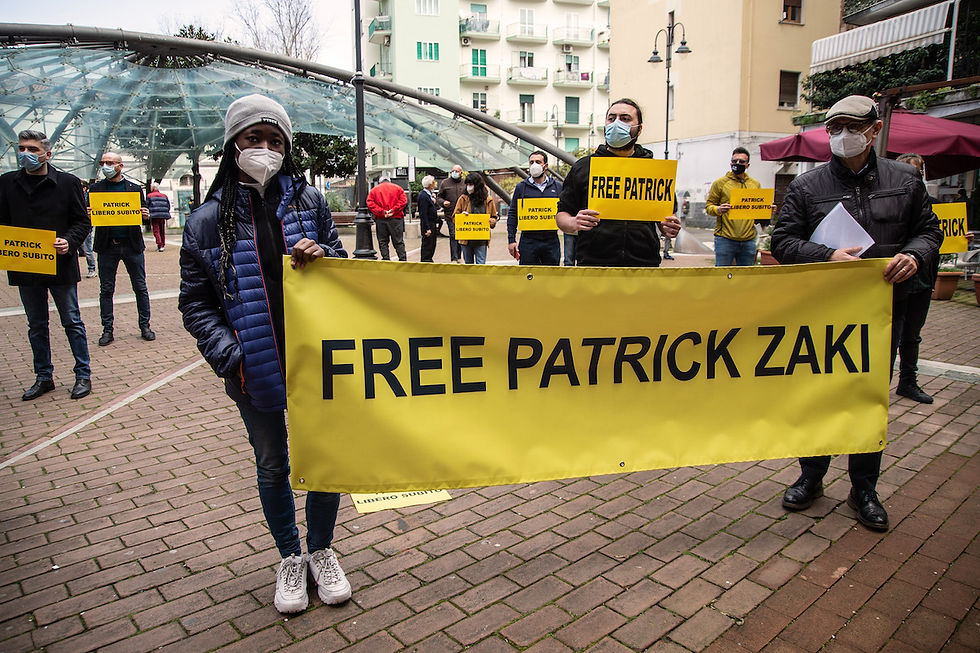
The illegal detention of Patrick Zaki is having a huge resonance throughout Italy not only because he is enrolled in a postgraduate programme at the University of Bologna, but also due to the looming memory of the murder of the Italian doctoral student Giulio Regeni, who was arrested, tortured and killed by the Egyptian secret services in 2016. As Egyptian police admitted, he had been investigated due to his research on the independent trade unions. Italian politicians repeatedly asked Egypt to provide information and hold the perpetrators accountable for the assassination of the young researcher, but Egyptian authorities kept obstructing the investigation and refused to name suspects. Moreover, the Italian government had been criticised for its approach towards Egypt at that time, for relying on trusting the Egyptian government despite the awareness of the human rights violations perpetrated on a consistent basis, and for not showing sufficient firmness and intransigence in demanding truth for Giulio Regeni. After such tragic experience, which alarmed and shocked the entire Italian society, the national community fears a possible repetition of the same dramatic scenario, as well as another failure of the Italian foreign affairs ministry in implementing a proper strategy towards Egypt for the investigation of human rights violation and the protection of an Italian national or, in this case, of an individual with strong ties with Italy.
Social and political mobilisation at the EU and Italian level...
On 12th February 2020, EP President David Sassoli reminded the Egyptian authorities that the EU’s support in third countries depends upon the state’s compliance with human rights. The strong statement provoked the vivid reaction of Ali Adbel Aal, President of the Egyptian Chamber of Deputies, who rejected Sassoli’s “unjustifiable and unacceptable” accusations. Such diplomatic dispute is to be understood not only as a mere polemic exchange of conflicting declarations, but also as the clear demonstration of the conceptual and pragmatic difficulty to reconcile the narrative of promotion of human rights protection worldwide, supported by the EU, and, on the other side, the rhetoric condemning this practice as a foreign interference in domestic affairs on the human rights issue.
The European Parliament took a further step by addressing some parliamentary questions to the Commission on 20th February 2020, asking for EU members’ diplomatic engagement, but demanding also to “specify what cooperation, training and funding projects it is undertaking with the Egyptian security forces and say whether it intends to review them” in the light of the situation concerning Patrick Zaki’s illegal detention. The High Commissioner for Foreign Affairs and Security Policy Josep Borrell simply replied, on behalf of the Commission, that the EU condemns human rights violation and supports Egyptian civil society in its struggle for freedom, avoiding to directly touch the subject of a possible reconsideration of the EU-trained security forces.
Despite the Parliament’s activeness in promoting a further European engagement in the Patrick Zaki affair, the initiative is currently meeting no significant proactive response from the other institutions. Consequently, the EU overall policy is undoubtedly lacking an official joint strategy and a choral push for the release from illegal detention of the EU-based student.
Several demonstrations of solidarity were shown on various level of the Italian society. Artists and musicians, academic institutions, as well as individuals and city administrations have been making their voices heard for the liberation of Patrick Zaki. The most meaningful and potentially decisive initiative of the Italian parliament concerns the possibility to grant Patrick Zaki the Italian citizenship, based on art. 9, paragraph 2 of the citizenship law of the Italian Republic, which states that “citizenship can be granted to the foreigner when he has rendered eminent services to Italy, or when there is an exceptional interest of the state”. This is believed to send an important signal of the Italian government’s determination in demanding freedom for the researcher, and would allow Italy to ask for his extradition, facilitating his release from prison. As a matter of fact, on 14th June 2021 the Senate approved the motion, initiated by Enrico Letta’s Democratic Party (PD), calling on the government to act in that direction. Significantly in showing the high degree of agreement on the subject across the political spectrum, the motion was presented as a unitary agenda and received a large majority of votes in favour.
...but no cohesion for shared action. What’s behind that?
Despite the notable initiation efforts from the EU parliament and the Italian parliament, a generalised lack of participation from other institutions and latent unwillingness to act can be clearly noticed. Such a clashing dichotomy was unfolded, for example, when the European Parliament questioned the Commission about the possibility to review the EU’s relations with Egypt and suspend the free trade agreement with the country until the prisoner’s release. To such a precise request to take firm action, the Commission gave a rather elusive answer, simply stating that the subject is to be discussed together with the EU member states and Egypt.
It is rational to believe that the reason for the lack of official action can be found in the typically pragmatic and economy-oriented nature of the EU-Egypt relations, which did not shift even after al-Sisi came to power and prohibited EU financing to Egyptian civil society organisations. As a matter of fact, EU is now one of Egypt’s most important commercial partners, while Egypt represents for the EU a strategic partner in economic and security issues, as well as in migration management and in the fight against terrorism.
Moreover, some EU members states have particularly tight economic relations with Egypt. Egypt is among France’s and Italy’s main customer for war material, which has not stopped being supplied by the Italian company Fincantieri even during the Zaki case and the pandemic. What is more, Eni, the biggest Italian oil and energy company, significantly replies on the extraction and energy production from Egyptian oil and natural gas. Consequently, Italy does have a lot to lose in a diplomatic crisis with Egypt, since it would naturally result in retaliations damaging Eni’s economic activity. The Italy-Egypt overall relations, alongside with the wider EU trend, has not changed since the illegal detention of Patrick Zaki. While in 2016 the Italian ambassador in Egypt had been withdrawn after Giulio Regeni’s murder, current ambassador Giampaolo Contini is still sitting in Cairo. As it has been meaningfully said by former premier Giuseppe Conte to the Egyptian president al-Sisi, “Italy sits in a disadvantaged position” due to the strong economic ties and the geographical proximity of the two countries.
Apparently, in the EU-Egypt relations the concern about human rights finishes where economic interests begin.
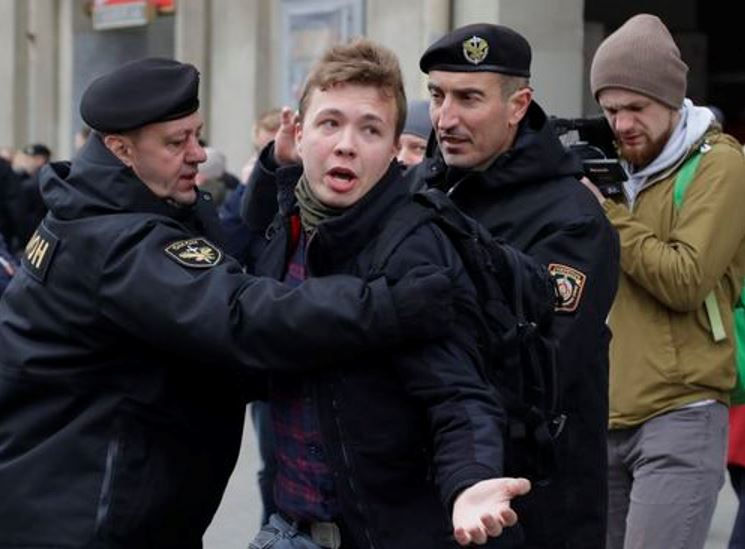
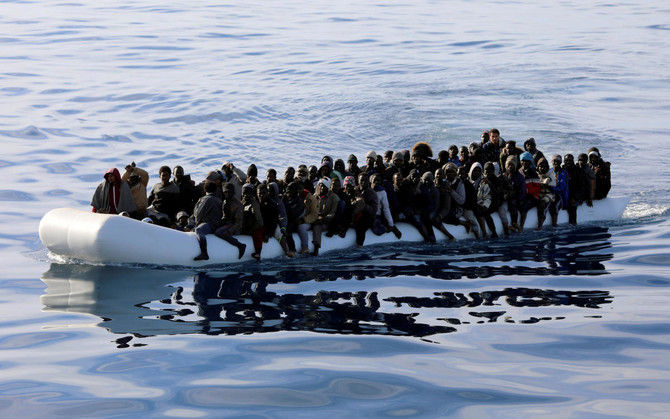
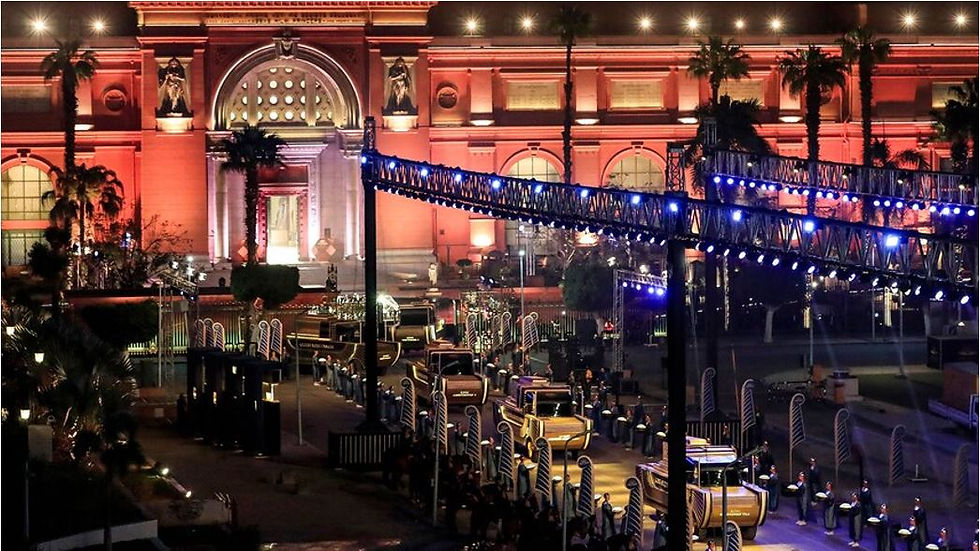
Comments